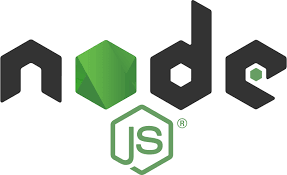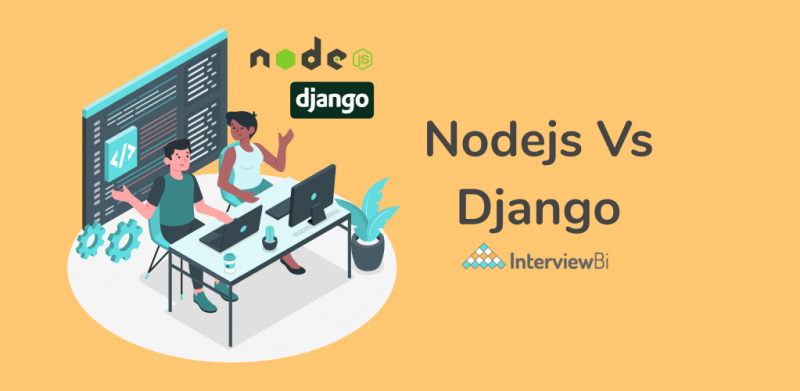The most popular websites and web applications of today have a very good User Interface so that the Customer Experience becomes really good and more people are attracted to the website or application. The part of the website or web application that is visible to the User is known as the Front End and it is very important for any website or web application to have an engaging front end. However, it can be said that to have a great Front End, it is imperative that the Back End of the website or web application needs to be really good.
The back End of any website or web application is that part of the application that is not visible and accessible to the user. Even though not visible directly to the user, a lot of the major functionalities of the Web applications are handled using the back end. It usually consists of servers, databases, APIs and many more parts that power the front-end components of an application to work seamlessly.
There are a number of Back End Technologies that have been developed to date: Rails, Django, Laravel, Node.js, etc. These technologies provide a lot of features to the application like testing, debugging, and database management tools.
Confused about your next job?
These back-end technologies ensure that the productivity of the developers is increased (as they do not have to reinvent the wheel while coming up with solutions to various problems) and that the development process is seamless. Two of the most popular back-end technologies that have been used to develop hundreds of applications back end are Node.js and Django. Both of these technologies are very much in demand in today’s tech world and in this article, we are going to deep dive and take a look at what these two Technologies are and what are the major differences between Django and Node.js.

Introduction to Node.js

Node (also known as Node.js) is one of the most popular open-source, back-end JavaScript runtime environments of today’s time. It can be used across a lot of platforms for the execution of JavaScript code outside a web browser. Node.js allows developers to utilize JavaScript to the fullest by using command line tools (CLIs). It also allows developers to write scripts on the back end or server side, for instance, running scripts on the back end to develop web page content that is dynamic, before sending the page to the web browser of the user, etcetera. Node.js also allows developers to create REST APIs which aids in the faster and seamless development of web applications .Node.js represents a “JavaScript everywhere” paradigm and unifies web application development around one single programming language (that is Javascript) rather than multiple languages for both client-side and server-side scripts. For the execution of JavaScript code on the backend or server side, virtual machines like Google’s V8 run it on the servers. Hence, Node.js acts like a wrapper around virtual machines like them.
A lot of developers all around the world want to learn node.js and node.js frameworks because it makes the task of building back-end API services extremely simple and convenient. Node.js has a lot of in-built modules which provide a lot of cool features via easily understood asynchronous (a way of parallel programming in which, a unit of work runs separately from the main application thread and notifies the calling thread of its completion, failure, or progress) Application Programming Interfaces (APIs ).
Key Features of Node.js
A budding developer should definitely learn node.js because it possesses the following features:-
- Node.js supports the extremely popular “JavaScript” language and can be used for building extremely scalable and fast applications.
- Node.js is very useful for making prototypes of web applications and agile software development.
- Due to its clean and consistent codebase and a large ecosystem of libraries, Node has found its usage in some of the huge corporate companies including GoDaddy, Amazon Web Services, IBM, LinkedIn, Microsoft, etcetera. So, Node.js can be extremely useful for clearing technical rounds (find node.js interview questions here) and a well-versed Node.js developer is most likely to secure a job at any technology company.
- Node.js can run on a lot of operating systems, for instance, Linux, Windows, or macOS.
- It can also be used for the backend development of any web application, which means that the entire development process can be done using only JavaScript. The information and expertise required for full stack developers have emerged, and a budding programmer of today can commence launching his or her own app faster using Node.js.
Introduction to Django

Django is a free and open-source Python-based web framework that follows the MVT (Model View Template) Architectural pattern. It was developed and is maintained by the Django Software Foundation (DSF), an American independent nonprofit organization. The Django web framework helps in supplying ready-to-implement solutions for the backend of applications.
It eases the creation of complex, database-driven websites by emphasizing reusability and “pluggability” of components, less code, low coupling, rapid development, and the principle of don’t repeat yourself (DRY). The Django framework can also provide an optional administrative create, read, update and delete interface which can be generated dynamically through introspection and configured through admin models. Some of the famous companies using the Django Framework are Instagram, Mozilla, Nextdoor, etc.
Key Features of Django
Now that we know a little about what the Django framework is, let us take a look at some of its key features:
- Django can be claimed to be one of the most popular Python frameworks of all time and is primarily designed to facilitate quick development.
- Django mainly focuses on high-level processes and abstracts the low-level processes.
- All the projects made using Django can consist of particular or multiple internal applications.
- Django supports the extremely popular “Python” language and can be used for building extremely scalable and fast applications.
- Django can be used to create scalable web applications with good performance and speed.
Node.js vs. Django: Comparison and Difference

Now that we have a clear understanding of what Node.js and Django are, let us take a look at the major differences between the two and see who wins in the competition: Node.js vs Django:
| Parameter | Django | Nodejs |
|---|---|---|
| Initial Release | The Django web framework was first released in the year – 2005. | Node.js was first released in the year – 2009. |
| Developed by | Django was developed by the Django Software Foundation (DSF), an American independent nonprofit organization. | Node.js was previously governed by the Node.js Foundation. The Node.js Foundation has now merged with the JS Foundation to form the OpenJS Foundation which maintains The Node.js distributed development project. |
| Key Aspect | Django is mostly a web development framework. | Node.js is mostly a runtime environment for Javascript |
| Language on which the framework is developed on | Django is a Python-based web framework. | Node.js has been developed on top of JavaScript, C, and C++. |
| Architectural pattern followed | Django follows the MVT (Model View Template) Architectural Pattern. | Node.js has an event-driven model. |
| Complexity | The Django web framework is a bit more complex than Node.js as the developers need to adhere to certain pathways for working out any problem. | Node.js is less complicated than Django because developers can solve any problem however he or she wants. |
| Cost Efficiency | The fact that the Django web framework is more dynamic and gives fast speed makes it more cost-effective than Node.js. | The fact that Node.js absorbs more functioning time, even though it is easier to learn, makes it less cost-effective than Django. |
| Security | The security of the Django framework is better than that of Node.js because of the fact that it has a built-in system that protects it from any security failure. | Node.js is less secure than the Django framework because it needs a manual operation in the system to administer security flaws. |
| Applications | Django is being used in a lot of companies like Youtube, Disqus, Instagram, etc. | Node.js is also being used in a lot of popular companies like Netflix, Linked In, PayPal, etc. |
| Scalability | Django is more scalable than Node.js | Node.js is less scalable than the Django web framework. |
| Performance | Django performs better than Node.js only in CPU-intensive conditions, like Node. js is single-threaded. | Node.js usually performs better than Django most of the time. |
| Reputation | Django has a more solid reputation than Node.js. | Although Node.js does not have as good a reputation as Django, it is growing steadily in popularity all over the world and might soon become the preferred framework. |
| Full Stack Web Development | Django is primarily a Back End framework and it cannot be singly used to develop full-stack web applications. | Node.js has the capabilities to create both frontend and backend parts of a web application using only one programming language, that is, JavaScript. Because of this, Node.js is becoming one of the most preferred technologies for web app development. |
| Stability | Django web applications are more stable than web applications made using Node.js. | Node.js web applications are less stable than web applications made using the Django web framework. |
| Community Support | Django has a reasonably active but small community. | NodeJS has an active community with experienced users to assist you with updates and customization compared to Django. |
Conclusion
Now that we understand what Django and Node.js are and what are the differences between them, we can safely say that both these technologies are really promising and can be used to build scalable solutions to complex real-world problems. Both Node.js and the Django web framework are advanced technologies that could be a benefit for your stack as they both have a huge variety of tools available. To create a seamless, modern web application promptly, Django can be preferred whereas if there is a need to customize the development environment to form a distinctive JavaScript-based application, Node.js can be preferred. Hence, we hope that we were able to answer our reader’s question “Node.js vs Django, Which is better?” successfully through this article.
Frequently Asked Questions
Q.1: Can I use Django with node js?
Ans: Yes, we can use Django with Node.js with the help of in-memory data structure stores like Redis. In fact, it is beneficial at times to use more than one back-end technology to support the use cases of the application.
Q.2: Is Django front or back end?
Ans: Django is a back-end web framework.
Q.3: Do I need HTML for Django?
Ans: No, it is not necessary for one to know HTML to learn or use Django.
Q.4: Is Node js better than Django?
Ans: In a way, it is very difficult to say whether Django or Node.js is better as they cannot be really compared to one another. There is no way to follow and decide which of the two technologies can be used for web and mobile app development. The scalability and performance of both technologies are pretty good. However, if one wants high scalability, Django can be preferred and if one requires high performance, one can probably use the Node.js framework. It will be safe to say that according to the use case, one can decide which technology of the two should be used.




